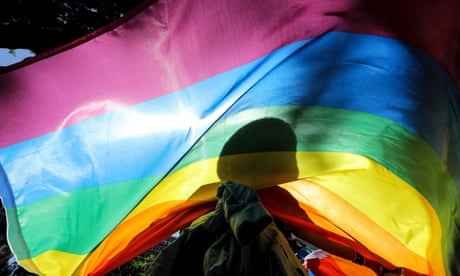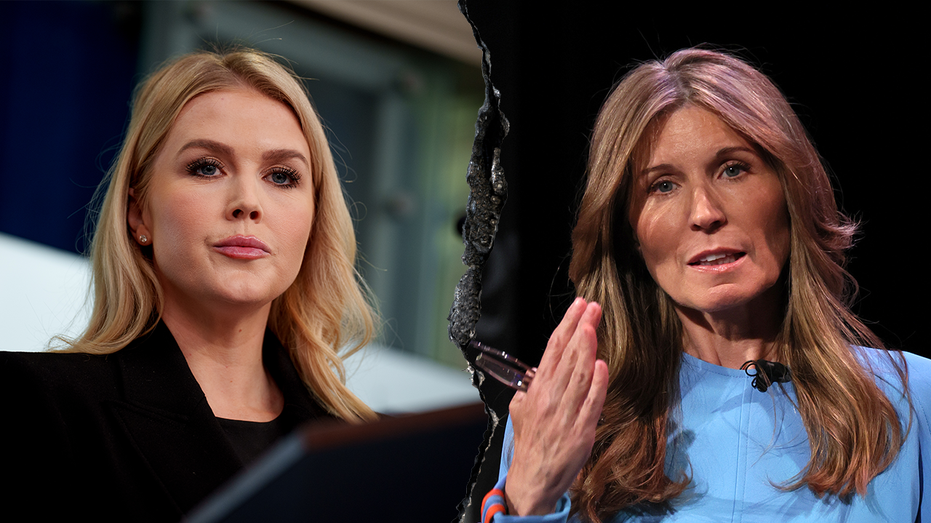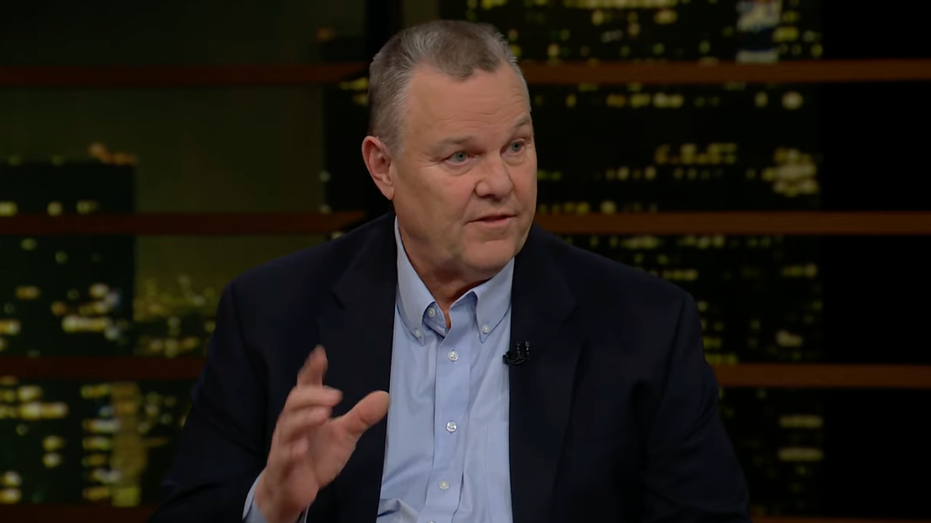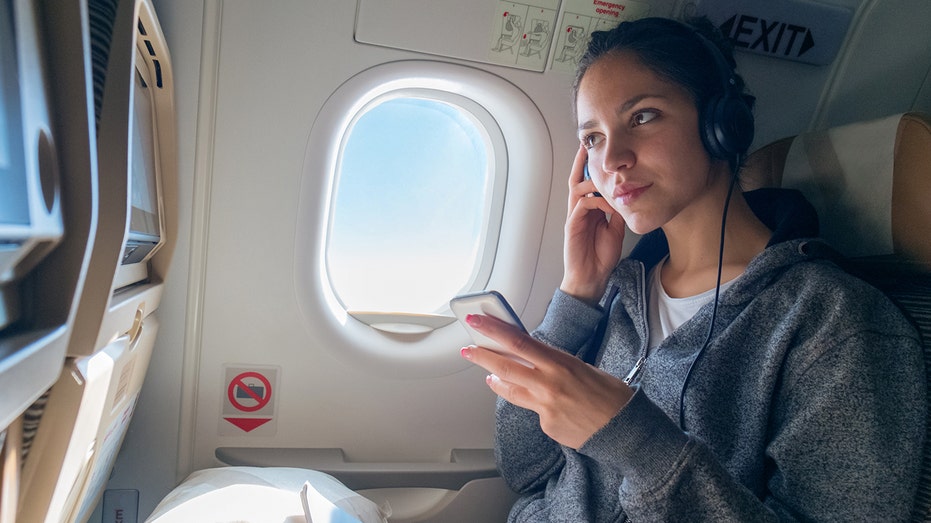- by foxnews
- 09 Mar 2025
‘Equality is not negotiable’: the schools embracing gender diversity
‘Equality is not negotiable’: the schools embracing gender diversity
- by theguardian
- 12 Feb 2022
- in news

Quinn Clements, 16, is gender fluid. The pronouns they use can change but they prefer they/them.
In year 10 they came out at their all-girls religious school in Melbourne.
"Obviously that was quite nerve-racking. It's a lot to be at a single-sex school, and to be like I'm not the gender I'm supposed to be while here," they say.
Mentone Girls grammar is a Christian school in Melbourne's south. Under the Coalition's proposed religious discrimination bill, Quinn's teachers would have had the ability to expel them from the school.
"I go to a religious school that is supported by the church, and I think I am really lucky to have that support in that environment," Quinn says.
"I thought we moved past hating gay and trans people. I hoped that wasn't a thing in Australia any more but it so obviously is."
At Mentone, Quinn is accepted for who they are. They have set up weekly meetings for LGBTQ+ students to raise issues, support each other and just hang out. A teacher joins them to help liaise on any changes they want made.
They run events, have pushed for sex-ed to not just be "putting condoms on bananas" and wider recognition of chosen names, instead of "dead names" - birth names.
On Wednesday night the government suffered a major defeat when five of its members crossed the floor to vote with Labor on amendments to the religious discrimination law, protecting trans children from being expelled because of their identity.
The Coalition will now push for a Senate inquiry into the bill, avoiding a vote in the upper house on the legislation before the election.
Before the vote attorney general, Michaelia Cash, suggested preventing religious, single-sex schools from discriminating against trans students could lead to complications over bathrooms and uniforms and risk their whole ethos.
"Matters such as uniforms, bathrooms, as well as the wishes of other parents to send their children to a single-sex school would need to be addressed," she says.
In Mentone, the LGBTQ+ group is now advocating to have the "female" on bathroom stalls removed, so those who don't identify that way feel more comfortable.
Quinn says the fact a lot of the debate goes back to bathrooms, and if people with different genitals should be allowed in the same one, misses a key point.
"Trans people don't go into bathrooms looking to do anything harmful. They go to pee," they says.
"[The stalls] are private already. People need to stop thinking all trans people are predators. I'm just trying to live my life. I just need to go to the bathroom, I'm not on the hunt."
For many LGBTQ+ students, school is already not the safest place. In June last year, a survey of more than 2,370 Australian high school students who identify as gender diverse and sexuality diverse was conducted by Western Sydney University.
It revealed 93% of students had heard homophobic language at school, and of those 37% heard it "almost every day".
A lot of the time teachers did nothing to stop it, the students said, with only 6% of students surveyed saying adults "always" intervened.
Some of the case studies were alarming - one student explained that another had thrown an apple at his head after telling him the classroom was for "normal straight people only", another said her peers used the word "faggot" frequently and teachers never intervened.
But when LGBTQ+ students attended schools that were proudly supportive of them they had higher rates of wellbeing, which lead to better academic prospects - with significantly more saying they would attend university.
Timothy Simpson, a teacher at Fitzroy high school in Melbourne's inner north says there is a correlation between how comfortable students feel at school, and how well they do in life.
"Kids feel a sense of shame if they're in an environment where they're told who they are and how they feel about themselves is not OK," Simpson says.
"That sense of shame, they grow up with that, and it's a real challenge for a lot of the queer community across the world."
Part of Fitzroy high's ethos is equality - teachers respect the student's identities, use proper pronouns, a pride club meets every week and Simpson has even started an elective subject on queer history.
"Identity is really important when they move into high school and then adulthood. We try to show them that identity is valued," he says.
"I initially had an assignment to write a letter, telling them about my personal life and I decided to come out," she says.
"I felt comfortable around them. I didn't know they were queer. I said I would like to be out."
The teacher, who was also trans, set up All Sorts - a group for LGBTQ+ students to meet weekly. Riley says the group grew her confidence and was integral to helping her feel supported.
"It's basically a queer safe space," she says.
"The school community is extremely supportive. There is that safe space and opportunity to come to school and feel comfortable, be an individual and know you can thrive."
The teacher who helps run the group now, Connie Tomagra, says she sees students change in a really positive way - knowing themselves and being proud of their differences.
"It's been a really inspiring thing," she says.
"Throughout this time I've seen Riley grow into her confidence and become an amazing leader."
In 2010, the Victorian government established the Safe Schools program to ensure schools were safe places for all students. The program expanded nationwide in 2013 before finding itself at the centre of a national controversy, with Nationals MP George Christensen claiming the program worked like a "pedophile grooming a victim".
The Coalition government subsequently stopped funding the program, but schools in Victoria have continued to be supported by the state program.
The principal of Swinburne secondary college, Daryl Bennett, has ensured his school has strong links to Safe Schools and other LGBTQ+ organisations such as Minus18.
Students walk in Pride every year and across their hallways are posters explaining it's OK to be who you are. Bennett says he doesn't know how many trans kids are in the cohort because "we don't see them as different, they're just another student, another kid in our community."
Surveys they've done show their student body is highly connected to their education, and there are radically low rates of bullying.
The proof of how tolerance of diversity equals better life outcomes is in the pudding, Bennett says.
"At the end of our valedictory evening we have parents come up and say our students wouldn't have completed high school, they wouldn't be going to uni, they wouldn't be happy, or they're happier now than they have ever been."
Victoria's minister for education, James Merlino, says the state had started and kept the program because it worked.
"We've taken action in Victoria to make sure that in our schools, equality is not negotiable," he says.
"It's disgraceful that we're here again debating the right for children to feel equal, safe and valued at school - in Victoria, there is absolutely no place for discrimination in our schools."
- by foxnews
- descember 09, 2016
'Speaker scum' on flights sparks debate among travelers: 'This is getting out of hand'
A traveler asked social media users to weigh in on flyers who play audio aloud on their devices and don't use headphones.
read more


